Meet the Experts
Building resilience in the face of the significant changes brought on by California’s climate crisis requires an interdisciplinary approach by world-class researchers, and UCI is well positioned to meet this challenge. These are the experts whose work is highlighted on this special report website. Explore their profiles and learn more about what they’ve been doing to address our state’s environmental dilemma.
Biological Sciences
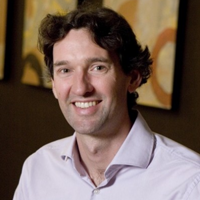
- Steve Allison
- Professor, Ecology and Evolutionary Biology
"Climate change threatens the whole planet, from people to plants, animals, and even microbes. As a biologist, I feel a responsibility to use my expertise to help solve this problem so it’s less of a burden on future generations."- Steve Allison
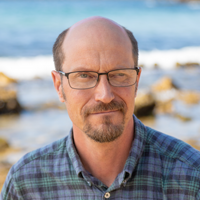
- Matthew Bracken
- Professor, Ecology and Evolutionary Biology
"My research focuses on the causes and consequences of changes in biodiversity - the variety of life on Earth. I seek to understand the different factors that modify the types, numbers, and relative abundances of species at a location and the effects of changes in diversity on how communities and ecosystems work. The web of life connects the species in a place so that if one is impacted or lost - due, for example, to climate change, which is one of the greatest threats to biodiversity - the system does not work as well as it should."- Matthew Bracken
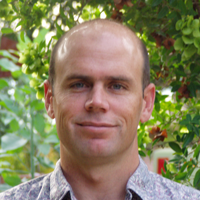
- Travis Huxman
- Director of Center, Environmental Biology
- Professor and Chair, Ecology and Evolutionary Biology
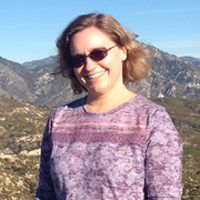
- Sarah Kimball
- Assistant Director, Center for Environmental Biology
- Associate Adjunct Professor, Ecology and Evolutionary Biology
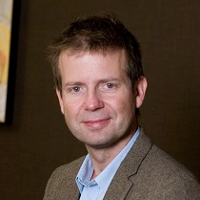
- Adam Martiny
- Professor, Ecology and Evolutionary Biology
- Professor, Earth System Science
- Marine Microorganisms, Genetics, Environment, Climate Change, Ocean Biochemistry, Nutrient Cycles
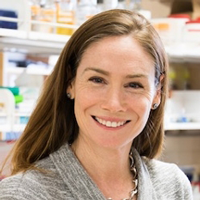
- Jennifer B.H. Martiny
- Professor, Ecology and Evolutionary Biology
- Co-Director, UCI Microbiome
Center for Educational Partnerships
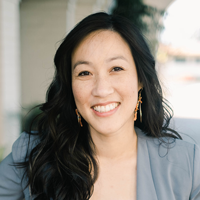
- Kelley Le
- Program Director of UCI Science Project
"All students have the right to learn about climate science so they can both prepare for a more challenging future and be part of the solution to redesign that future - one where we all have access to clean air, water, food, land, and opportunities."- Kelley Le
Chemistry

- Ann Marie Carlton
- Professor, Chemistry
"The climate crisis is an existential threat, unlike any humans have previously experienced. I feel I have to try to do something *right now* to have any potentially relevant impact whatsoever for the people I love and care about."- Ann Marie Carlton

- Jenny Yang
- Chancellor's Professor, Chemistry
- Inorganic and Organometallic Chemistry, Polymers, Materials and Nanoscience
"Scientific advancements have provided transformative improvements to our quality of life and standards of living. As our population grows, it is urgent that we focus on improving sustainability and minimizing environmental impact."- Jenny Yang
Earth System Science
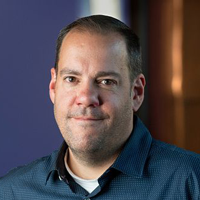
- Steve Davis
- Associate Professor, Earth System Science
- Agriculture, Economy, Climate, Energy, Trade
"I’m motivated by the idea that our research can help people make better decisions on important topics. Climate change and the transition away from fossil fuels will affect everyone in some way, and I hope the fundamental insights we generate can help limit impacts and make society’s responses cheaper, smoother, and more equitable."- Steve Davis
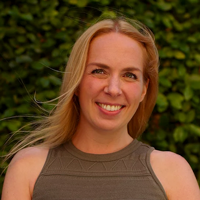
- Kate Mackey
- Clare Boothe Luce Associate Professor, Earth System Science
- Marine Phytoplankton, Ocean Biogeochemical Cycles, Global Climate Change

- Adam Martiny
- Professor, Ecology and Evolutionary Biology
- Professor, Earth System Science
- Marine Microorganisms, Genetics, Environment, Climate Change, Ocean Biochemistry, Nutrient Cycles
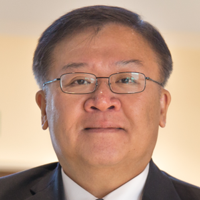
- Jin-Yi Yu
- Professor, Earth System Science
- Atmospheric Science, Climate Policy, Weather Analysis, Global Physical Climatology, Geoscience Data Analysis
"Climate change and its environmental impacts are an urgent challenge to humanity that demands we develop accurate predictions of their evolution."- Jin-Yi Yu
Engineering
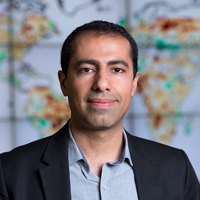
- Amir AghaKouchak
- Professor, Civil & Environmental Engineering
- Climate Extremes, Climatology, Climate Change, Flood, Drought, Heatwave, Hydrology
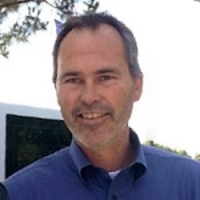
- Jack Brouwer
- Professor, Mechanical & Aerospace Engineering, Civil & Environmental Engineering
- Director, National Fuel Cell Research Center, Advanced Power and Energy Program | National Fuel Cell Research Center
- High-Temperature, Electrochemical Dynamics, Renewable Hydrogen, Renewable Power Dynamics
"I am motivated by my understanding that God has given me the responsibility to care for Earth and to be concerned for the environment and our posterity. That’s why I am working on coupling hydrogen with batteries, fuel cells, electrolyzers, and renewable power technologies to cost-effectively and reliably produce sustainable energy with zero emissions that is available to all people." - Jack Brouwer
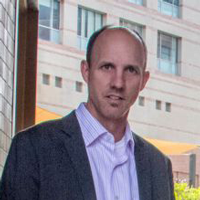
- Brett Sanders
- Professor, Civil & Environmental Engineering
- Flooding in Urban and Coastal Areas, Flood Control Infrastructures, Hazard Modeling, Sediment Management, Shallow-Water Hydrodynamics and Morphodynamics, Population Health, Poverty Alleviation
"We all have a responsibility to be stewards of the earth and the resources it affords humanity. Work is critically needed now to provide for future generations."- Brett Sanders
Humanities
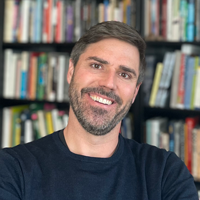
- James Nisbet
- Associate Professor, Art History
- Director, Environmental Humanities Research Center
“Thinking critically about how we represent climate change in our cultural expressions – from art, film and literature and to the histories that we write about the earth – are all vital to the pressing task of shifting society’s ways of imagining our planet and making choices that benefit its health for all the life and relations it sustains.” - James Nisbet
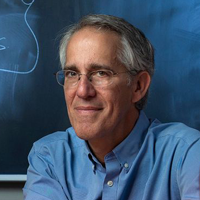
- Jeffrey Wasserstrom
- Chancellor's Professor, History
- Globalization
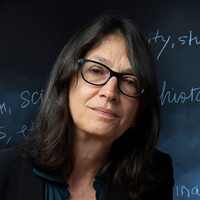
- Amy Wilentz
- Professor, English
- Climate Change Reporting
"It’s about the end of the world as we know it, and how we can mitigate the trauma and catastrophe. It’s about our responsibility to other species, and life itself. It addresses big-picture questions: what is mankind’s responsibility to creation? How do we see ourselves in the world? … It teaches students as journalists to ask both the small questions, like, how does this tiny golden frog live in captivity, or what’s the effect of this bridge on the wildlife near it, as well as big questions like how do we want our children’s world to look, and how much are we willing to give up to make it look that way. And it teaches them to think about how to frame stories to give them the biggest and most useful effect."- Amy Wilentz
Law
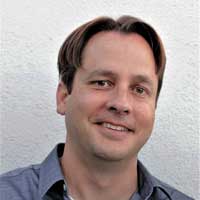
- Alejandro Camacho
- Chancellor’s Professor, Law
- Faculty Director, UCI Law Center for Land, Environment, and Natural Resources
- Environmental and Natural Resources Law, Land Use Regulation, Government Regulation and Policy
"Global human-caused climate change is raising truly fundamental questions about the design and objectives of government. Public institutions need to be designed to actually account for the dynamic character of natural and human systems. My work seeks to make government more effective by reframing conversations about the goals of conservation, the role of public participation and scientific expertise in decision-making processes, and the allocation of authority between regulatory institutions."- Alejandro Camacho
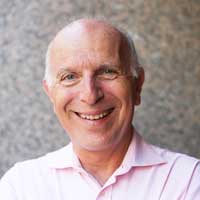
- Joseph F. C. DiMento
- Distinguished Professor, Law
- International Law, Environmental Law, International Environmental Law, Urban Planning
"The legal and policy regime for a climate change has evolved over several decades. Both remarkably and understandably, it is not well understood by many even well educated citizens. My work, both as a professor and for the Newkirk center for science, focuses on describing and explaining the legal environment and evaluating its effectiveness in the context of scientific findings."- Joseph DiMento
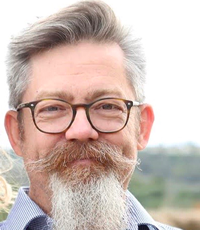
- Michael Robinson-Dorn
- Clinical Professor, Law
- Director, UCI’s Environmental Law Clinic
"I study climate change because it is one of the defining questions and challenges of our time – there are very few aspects of our lives, our relationships to one another, and our relationship to the environment that aren’t implicated. Fundamentally, climate change requires us to assess our common humanity and our values, and raises important questions about justice and our hopes for the future."- Michael Robinson-Dorn
Public Health
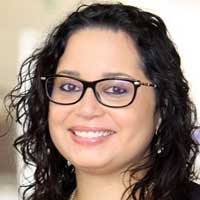
- Alana LeBrón
- Assistant Professor, Chicano/Latino Studies
- Assistant Professor, Public Health
"My passion for studying climate justice and working alongside local leaders designing and implementing community-driven solutions is motivated by my own child and other children of color who are disparately burdened by the harms of our extractive economy and climate injustices. Climate change presents an existential threat to our world and generations to come. Low-income communities of color who have been hardest hit are best poised to guide us toward climate justice."- Alana LeBrón
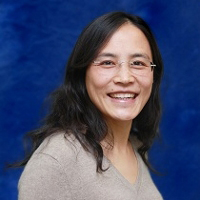
- Jun Wu
- Professor, Public Health
- Population-based Research of Environmental Exposure Assessment, Environmental Epidemiology, Environmental Health Disparity, Environmental Justice
"What motivated me to study climate change is its profound impact on every part of the world and from present to future generations. I feel the urgency to study climate change mitigation and adaption given my lived experience of more frequent and severe heat waves, wildfires, and drought in California in the recent decades."- Jun Wu
Social Ecology
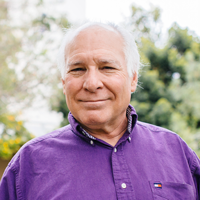
- David Feldman
- Professor, Urban Planning and Public Policy
- Director, Water UCI
- Director, UCI's Master of Public Policy Program
"My motivation is that climate change makes rainfall and snow-melt more erratic and less dependable, stream-flow and groundwater recharge more variable, available water supplies for people and nature less predictable, and water quality poorer because warmer water bodies with less water in them can't satisfactorily dilute pollution. Moreover, climate extremes - drought and flood - adversely affect people's lives, property, and well-being. "- David Feldman
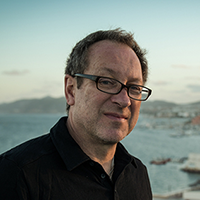
- Richard Matthew
- Professor, Urban Planning and Public Policy
- Professor,
- Environment, Conflict and Peacebuilding; Transnational Threat Networks; International Ethics
"In California, across the country and globally, climate change is affecting people in different, and unequal, ways. My work, which is interdisciplinary and collaborative, focuses on understanding--and finding solutions for--communities of extreme vulnerability, where climate change is contributing to health setbacks, violent conflict, forced displacement, more frequent disasters, and poverty."- Richard Matthew
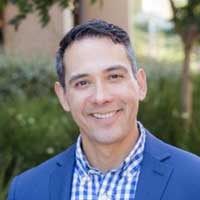
- Michael Méndez
- Assistant Professor, Urban Planning and Public Policy
- Environmental Justice, Disaster Studies, Public Health
- Méndez serves on National Academies' Climate Crossroads advisory committee.
"I investigate people, place, and power in the context of climate change and inequality. I am particularly interested in how environmental justice activists understand how climate change disproportionately harms underrepresented communities."- Michael Méndez
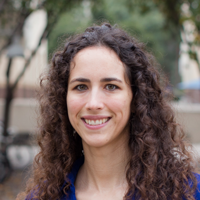
- Nicola Ulibarri
- Assistant Professor, Urban Planning and Public Policy
"Climate change is the biggest problem of our time. My goal is to help organizations adapt in a way that is equitable and builds resilience."- Nicola Ulibarri
Social Sciences
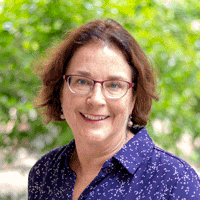
- Eve Darian-Smith
- Professor, Ecology and Evolutionary Biology
- Professor and Chair, Global and International Studies
"I study how the global rise of antidemocracy is accelerating planetary warming and ecological collapse. Linking the erosion of representative government to the corrosion of the natural world profoundly impacts how we imagine our collective futures and is – in my view – the most pressing global challenge of our times."- Eve Darian-Smith

- Alana LeBrón
- Assistant Professor, Chicano/Latino Studies
- Assistant Professor, Public Health
"My passion for studying climate justice and working alongside local leaders designing and implementing community-driven solutions is motivated by my own child and other children of color who are disparately burdened by the harms of our extractive economy and climate injustices. Climate change presents an existential threat to our world and generations to come. Low-income communities of color who have been hardest hit are best poised to guide us toward climate justice."- Alana LeBrón
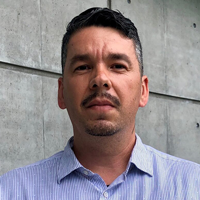
- Salvador Zárate
- Assistant Professor, Anthropology
"I am motivated by working alongside the racialized minority communities who in addition to having a stake in climate change debates actively create new and meaningful ways to live with a changed planet."- Salvador Zárate